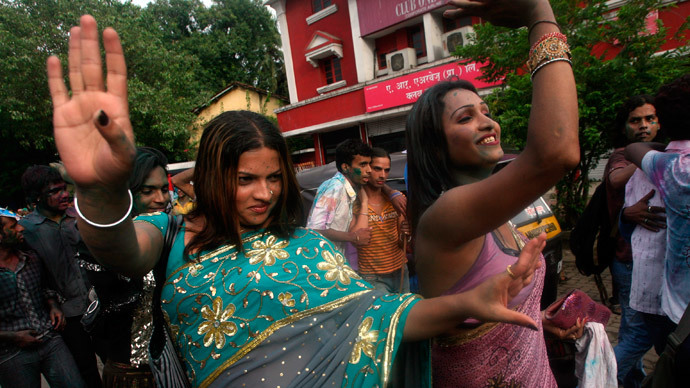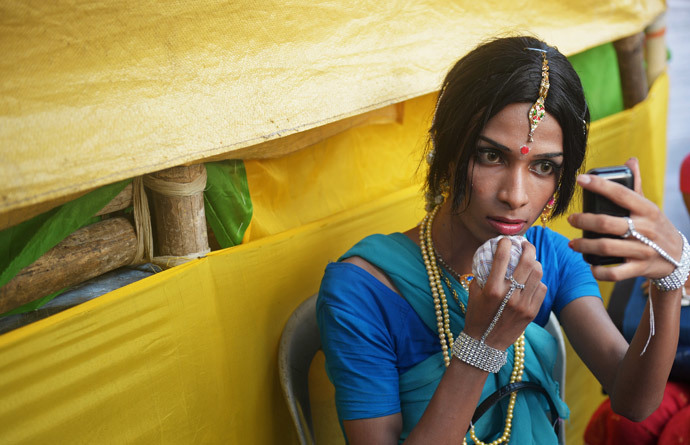Published time: April 15, 2014 16:46

According to the court decision, state and federal governments will now allow transgenders to identify themselves on official documents, such as birth certificates, passports and driving licenses, as a third gender along with males and females. Any person who has undergone surgery to change his or her sex will be recognized as belonging to the gender of their choice said the court, adding that transgender people would have the same right to adopt children as other Indians.
"The spirit of the (Indian) Constitution is to provide equal opportunity to every citizen to grow and attain their potential, irrespective of caste, religion or gender," the court said in its decision.
“Recognition of transgenders as a third gender is not a social or medical issue but a human rights issue," said Justice K.S. Radhakrishnan, who headed a two-judge bench on the case.
Transgenders will also be included in welfare schemes offered to other minority groups, and the government will provide public sector jobs, places in schools and colleges and medical care for them, said Sanjeev Bhatnagar, a lawyer representing the petition.
The Supreme Court’s decision comes after representatives of the transgender community in India sent a petition in 2012 to the court, demanding recognition for the transgender population as well as equal rights with other Indian citizens.
According to India’s prominent transgender rights activist, Laxmi Narayan Tripathi, the court decision is a step towards ending discrimination against transgender people.
"Today I feel a proud citizen of India. This verdict has come as a great relief for all of us," said Tripathi who, along with a legal agency, filed the petition, "Today my sisters and I feel like real Indians and we feel so proud because of the rights granted to us by the Supreme Court."
India's Election Commission has already introduced a law allowing a third gender choice — "other" — on voter registration forms, which was made before the national elections being held in phases through May 12.
Third gender politics worldwide
India’s transgender community, numbering hundreds of thousands people, wasn’t officially recognized by the authorities until Tuesday’s court ruling.Sanjay Srivastava, professor of sociology at the Institute of Economic Growth in New Delhi, defines transgender people as those who have either had sex change operations, or who regard themselves as the opposite of their born gender.

The ruling of the Supreme Court says the law only applies to transgender people and not to gays, lesbians or bisexuals. In December 2013, the Indian Supreme Court upheld a ban on decriminalizing homosexual sex.
India is not the first Asian country which officially recognizes a third gender. Nepal's 2011 census was the first national census in the world to allow people to register as a gender other than male or female.
In Thailand and Cambodia, these are sometimes referred to as kathoey or ladyboys, who are basically males that dress and behave like women.
In November, 2013 Germany became the first European country to allow parents of babies born with no clearly-defined gender characteristics to leave the ‘male/female’ field on birth certificates blank, creating a ‘third sex’ category in the public register.
As adults, German intersex individuals will soon be spared the necessity to conform to the conventional gender framework, as the current two options of entering either ‘M’ for male or ‘F’ for female in passport gender fields, will be officially supplemented by a third option: ‘X’.
This kind of three-gender-choice system was introduced in Australia in 2011. New Zealand followed

No comments:
Post a Comment